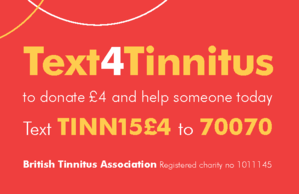Hello,
Given how some of the questions have been posed so far, it's probably worth stating that the views may be personal opinion rather than an organisation view (e.g. direction of future research, etc.) although we'll try and make this clear in any responses we give.
We'll try and answer as many questions/follow up questions as we can. Probably also worth pointing out that none of us are medically qualified.
Looking forward to the debate/discussion and hope it will spark new areas of work for the BTA too. We're a membership organisation and I'm keen that our members and the wider tinnitus community have an opportunity to influence the future direction of our work and have a full understanding of what we're up to!


This Q&A has now ended. You can find the answers to the questions Tinnitus Talk's members asked the BTA below.
Given how some of the questions have been posed so far, it's probably worth stating that the views may be personal opinion rather than an organisation view (e.g. direction of future research, etc.) although we'll try and make this clear in any responses we give.
We'll try and answer as many questions/follow up questions as we can. Probably also worth pointing out that none of us are medically qualified.
Looking forward to the debate/discussion and hope it will spark new areas of work for the BTA too. We're a membership organisation and I'm keen that our members and the wider tinnitus community have an opportunity to influence the future direction of our work and have a full understanding of what we're up to!
This Q&A has now ended. You can find the answers to the questions Tinnitus Talk's members asked the BTA below.

 Member
Member

